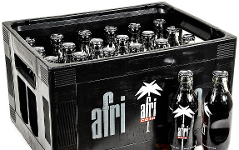Ambev
Ambev Reports Decline In Q2, H1 Earnings
Ambev S.A. reported a drop in net income for the second quarter and first half of 2024, with Q2 net income at BRL 2,396.31 million, down from BRL 2,503 million in the previous year. Basic earnings per share for Q2 dropped, as did diluted EPS. For the first half of 2024, net income fell to BRL 6,096.59 million versus BRL 6,202.5 million in the year-ago period.
Asahi
Asahi Sees Profit Growth Despite Oceania Decline
Asahi reported a 3.8 percent year-on-year revenue increase to JPY1.38 trillion in the first half of the year, driven by strong growth in ready-to-drink alcoholic beverages and in the Southeast Asia region. Core operating profits grew by 6.2 percent to JPY115.9 billion, with Japan’s shift towards premiumization and non-alcoholic beverages contributing significantly. However, the company faced challenges in Oceania, where profits dropped 11.7 percent on declining beer sales and higher costs. Asahi says it remains committed to brand investment and innovation, revising its full-year revenue growth forecast to 2.7 percent while maintaining its profit growth forecast at 4.3 percent.
Britvic
Carlsberg Acquisition Of Britvic Nears Completion
Carlsberg’s acquisition of Britvic is moving forward after approval for the £3.3 billion deal from 99.7 percent of Britvic’s shareholder votes. This brings the creation of Carlsberg Britvic, a UK beer and soft drink giant, one step closer. Carlsberg had to raise its offer twice before securing Board approval. The new entity will capitalize on synergies between beer and soft drinks, including joint procurement and shared R&D. Regulatory clearance is the next step, with completion expected in early 2025. Carlsberg also plans to acquire Marston’s 40 percent stake in Carlsberg Marston’s for £206 million.
Britvic Opens Upgraded £25M Distribution Centre In UK
Britvic has opened its enhanced national distribution center in Leicestershire, UK, following a £25 million investment. This facility now features advanced automation, including 17 automatic cranes and 20 automated vehicles, enabling it to move 600 pallets per hour. It supports the distribution of popular soft drinks like Robinsons, Tango and J2O to national and international customers. With the potential for increased capacity, the site is expected to have to handle more than the 75,000 trucks that currently pass through annually. Britvic was acquired by Carlsberg last month for £3.3 billion.
Carlsberg
Carlsberg Raises Profit Forecast Despite Weak Q2 Sales
Carlsberg raised its full-year organic operating profit growth forecast to 4-6 percent (up from 1-5 percent) despite weaker-than-expected Q2 sales, which were impacted by poor weather and weak consumer sentiment in some Asian markets. CEO Jacob Aarup-Andersen credited strong execution and cost control for the improved outlook. The brewer's China business outperformed the market despite challenges, while total volumes fell 3 percent due to adverse weather. Sales for the quarter reached 21.64 billion Danish crowns, missing analyst expectations.
Companies
Carlsberg Opens Advanced Brewery and R&D Center In China
Carlsberg Group inaugurated its 27th Chinese production facility in Foshan, Guangdong, with a $415.5 million investment. The brewery features advanced bottling, canning and kegging lines, emphasizing smart manufacturing and environmental sustainability, with hourly capacity for 48,000 bottles, 90,000 cans and 90 kegs. This facility, Carlsberg's first "sponge brewery" in China, significantly reduces water consumption by collecting and treating rainwater for various uses. Additionally, it is the first in China's beer industry to utilize rooftop solar-powered air conditioning. The site also includes Carlsberg's first R&D center outside Europe, focused on innovation and catering to regional market needs.
Carlsberg Acquires Full Control Of South Asian Operations
Carlsberg has acquired the remaining one-third stake in Carlsberg South Asia Pte. Ltd. for $744 million, gaining full ownership of its operations in India and almost total control in Nepal. This strategic move resolves disputes with Singapore-based partner C P Khetan and allows Carlsberg to consolidate its position in the South Asian market. The deal also includes purchasing an additional 9.94 percent stake in Nepal's Gorkha Brewery, increasing Carlsberg’s ownership to 99.94 percent. This acquisition highlights Carlsberg's commitment to expanding its presence in the region.
Lotte
Lotte Duty Free Opens Somaek Pop-Up in Seoul
Lotte Duty Free launched a “Cheoreom X Krush Somaek pocha” pop-up store in its “Now in Myeong-dong” showroom in Seoul, running from August 23 through September 18. The pop-up, themed “First Krush, love at first sight,” showcases a collaboration between local soju brand Cheoeum Cheoreom and Krush beer. The space, designed as a traditional Korean pocha, offers visitors the chance to experience Korean soju culture, personalize purchases and enjoy drinks and snacks. The initiative aims to attract tourists and promote Korean liquor culture while revitalizing the Myeong-dong district. “Somaek” is a South Korean cocktail comprising soju and maekju, the Korean word for beer. A pocha is an outdoor food or drinks stall.
Suntory
Suntory's Alcohol Sales Up 3.5% Amid Challenges
Suntory Holdings saw a 3.5 percent jump in its alcoholic beverages sales for the first half of the year, reaching JPY506.86 billion (around $3.44 billion). This growth is a slowdown from last year's 11.8 percent growth and was impacted by difficulties in the US market from shifting retail inventory strategies. Despite these challenges, Suntory achieved strong performances in Germany, India and global travel retail. In Japan, its canned highballs and Jim Beam whiskey performed well, but beer volumes fell by 4 percent, excluding alcohol-free variants. Its -196 RTD brand extended its reach to the US, Europe and South-East Asia.
Suntory Aims For Global Leadership In RTD Beverages
Suntory Holdings plans to become the world leader in ready-to-drink beverages, including hard seltzer and canned cocktails, by 2030 on a platform of strong overseas sales. CEO Takeshi Niinami emphasized the company's unique strength in both soft drinks and alcohol, with a new $437 million plant in Australia representing a major step in this strategy. Suntory’s RTD market share has grown rapidly, with the company aiming to double revenue in this area to $3 billion by 2030. Suntory Global Spirits, formerly Beam Suntory, plays a central role in product development and global expansion.
Copyright 2026 Business360, Inc.

